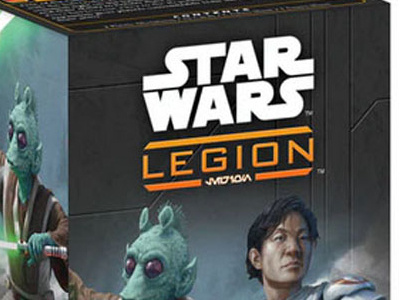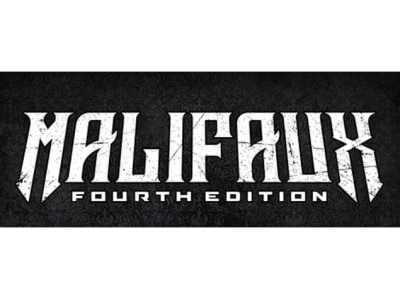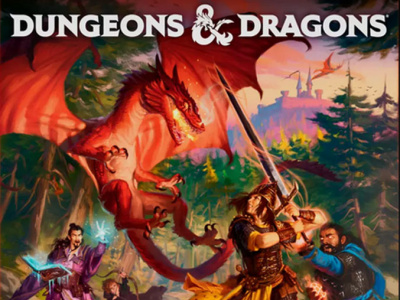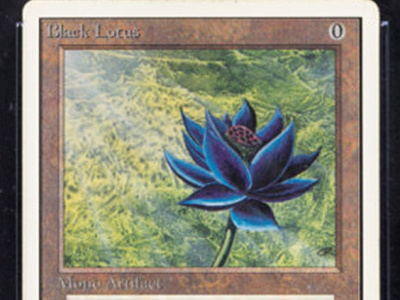Prompted by a flurry of Talk Back activity on ICv2.com discussing Magic Pre-Releases, we recently interviewed two Wizards of the Coast executives, VP of Marketing Casey Reeter and VP of Organized Play Chris Galvin, to find out more about how Wizards organizes its Magic: The Gathering events, and how it controls its sales channels. In Part 2, we talk about why pre-release events are held outside of stores, and what impact those events might be having on sales made in brick and mortar stores. In Part 3, we talk about Wizards' policies on Internet sales, and how it enforces them. And in Part 1, we got an overview of the different kinds of Magic organized play events.
One of the reasons we wanted to have this interview was to understand the pre-release events and why those are often held outside of stores (in
CG: What really happens is you have a person 'Bob' and Bob is a person who has signed a contract with us to run a big event. And he may have a company called 'Bob Event, Inc' that is his company that does that, and Bob may also happen to have a store, Bob's Comic Shop, so that's the nature of the relationship with about roughly 50% of the contractors that we run big events with.
Why are the pre-release events more regional rather than holding them in every store?
CG: This goes back to the strategy of wanting different kinds of events to fill different niches. Like I said, the watch words are access, local availability, always there when you want it... and some of that we want to be great big movie premier extravaganza-type events. We just made the strategic decision that pre-releases work very well as a big extravaganza event whereas an equally, in fact more successful program, like Friday Night Magic, works better as a local all-access event.
What about retailer concerns that the pre-release events draw sales that they would otherwise get out of their stores?
CG: It's a concern that we're aware of. We think ultimately that if we grow the total number of Magic players, then we're growing the business. If we employ the right tactics that maximize the total number of Magic players, then at the end of the day (which is what should really be looking at, we shouldn't be looking at any one particular day's worth of receipts), we should be asking ourselves, when we get to the end of the year, was there more Magic business to go around? If the answer is yes, then everybody benefits. Wizards benefits, retailers benefit, everybody benefits. We believe we are maximizing the total number of Magic players by running a good spread of small, medium and large events.
No argument there, but going back to the question, it's that early access to product is what make those bigger events, right? They're bigger because people want to see the product early, so they go to see the product before it's released.
CG: Obviously one of the biggest selling features of pre-releases is being the first kid on your block to play with these cards. Let's imagine, for the sake of argument, that every Magic booster pack that left a Pre-release Tournament was exactly reducing sales by one booster. First of all, I think that's kind of a silly proposal. I've been in this business for many years and I don't think Magic sales work quite like that, but let's just run with it for a minute. What's the total amount of burn, as it were, that walking out the door would produce from these tournaments? On average, every person who goes to a Pre-release Tournament leaves with seven booster packs. That's the average.
Casey Reeter: So the perception that Pre-releases are pulling a lot of sales out of stores isn't the reality. On average, players are walking out the door with under seven booster packs.
How many players are we talking about?
CG: In the vicinity of 20,000 in
So that's 140,000 booster packs?
CG: Give or take.
That seems like a big number.
CG: Well, we look at the total amount of products that we ship out to pre-releases as a function of the total amount of the product that ships out the door when a new set is available (this is not equal to the total print run, this is just the amount of product that we ship right away, so this doesn't count reorders and things like that), and it is very low single digit percentages.
If that's the case, why do you think the perception from retailers is that they're losing sales to those events?
CG: I think the hobby channel is under an awful lot of pressure from an awful lot of directions. I don't think this is a challenge that is unique to the hobby game business. I think that the huge amount of pressure that's being put on, let's call traditional sole proprietorship retail from on the one hand, mass market retail and from the other hand, Internet retail causes tremendous pressure. I think when people feel pressured they look for things to say, that's it, that's the thing that's causing me pain. But, the numbers just don't add up for pre-releases.
Like I've said, I've been in the business for a long time and I've had a lot of conversations with an awful lot of retailers. I know the numbers and the numbers just don't add up to the kind of magnitude that some retailers think they do.
Magic Game Day was a different sort of event structure that seemed to be very popular. What lessons do you draw from the success of Magic Game Day?
CR: Yes, Magic Game Day was an awesome event for us. It was very different, as Chris mentioned earlier. There was a different audience that it served, and so we learned a lot and we definitely want to replicate a lot of the things we did for Game Day going forward for release events.
One of those things is that we offered a variety of events; it was basically a big Magic party. Come one, come all. Demos, league tournaments, whether you're a newbie or a casual player or a core player, there's something here for you at Magic Game Day. That allows the retailers to be flexible, so depending on who their customers are, they can decide 'Oh, I'm going to emphasize the demos, or I'm going to emphasize this tournament,' so it was really great that we offered this variety and just made it this big Magic party.
We're going to do that some thing for Lorwyn and going forward. We've also beefed up our kits, the kits that we sent to stores have a lot of prize support in them -- stuff that we don't normally send, like backpacks and the promo cards were very, very cool. So going forward, we're also changing that, and starting with Lorwyn, we're beefing up our kits for stores with more prize support.
We also did TV advertising for Game Day and we're going to continue to do that. We're doing TV advertising for the Lorwyn release events this year and going forward. We also beefed up our Web support. This is something where we had done some minimal support in the past, but we're increasing going forward.
Do you mean advertising or features on your site?
CR: On our site. There used to be maybe one spot where we'd promote release events, and for Game Day we had it all over the place on our Website. We're going to do that same thing going forward and make sure it's embedded in all of our messaging all over the site. And there'll be more internal focus and resources that we're putting on it at Wizards, whether it's the organized play team, the marketing team, or the sales team, we're all putting more resources against it. Getting more stores involved is another example. Release events in the past have been held at roughly 600 stores, we'd like to make that 1,000 or more. So we're going to be putting more internal resources toward recruiting more stores to participate in releases events going forward.
CG: I just wanted to clarify the different types of events from earlier. We have Pre-releases, which are the great big events that happen 10 days before a set goes on sale. And we also have another class of events called Release Events that happen the day or the weekend that the set goes on sale and, unlike pre-releases, these are events that are geared for local access, so those do tend to be run almost exclusively by local area stores, and we give them access to prize cards and P.O.P materials.
The nice things about release events is, because they're held the first weekend that product is available, what our vision for those events are is Wizards and retail works together to drive lots and lots of players into the retailer's store when the product is fully available for sale and then the retailers should sell lots of product to players in the tournament, and everybody goes home happy. So Release events are distinct from Pre-release.
Click here for Part 3.
Pre-Releases and the Impact on Store Sales
Posted by ICv2 on September 13, 2007 @ 11:00 pm CT
MORE NEWS
New Clone Troopers Sets and Jedi General and Knight Set
July 15, 2025
Atomic Mass Games announced four new Star Wars: Legion miniatures expansion packs, for release into retail.
Scheme and Strategy Rules Receive an Update
July 15, 2025
Wyrd Games will release Malifaux 4E: Core Book for the popular horror miniatures game.
MORE GAMES
'Heroes of the Borderlands'
July 15, 2025
Wizards of the Coast announced that Heroes of the Borderlands , a new Dungeons & Dragons Starter Set, has hit preorder.
At Heritage's Recent 'Tapping into the Many Worlds of Magic: The Gathering' Auction
July 15, 2025
Older cards hammered at slightly cheaper prices than average.







